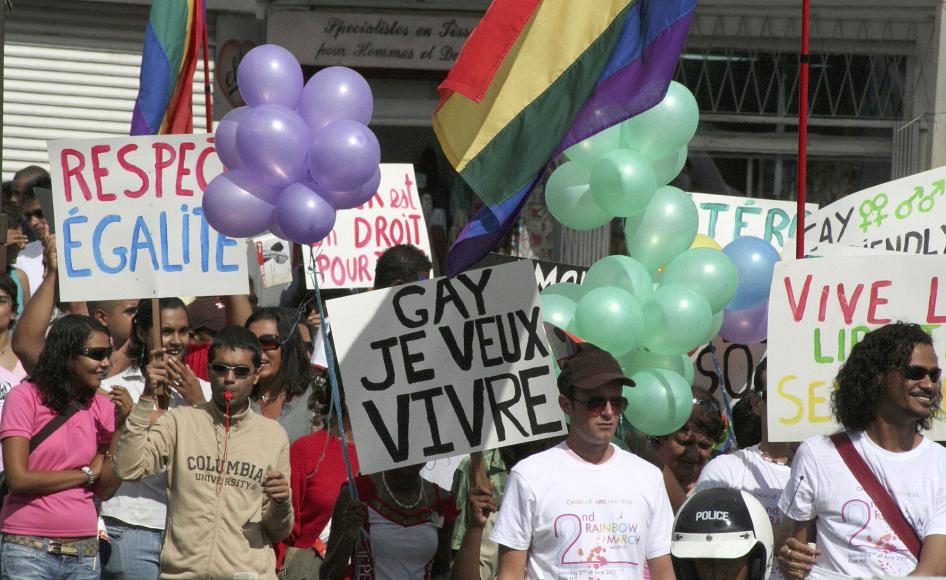Two landmark judgments of the Supreme Court of Mauritius have struck down the provision in the Criminal Code that outlawed consensual sex between men, rejecting the law as a discriminatory colonial relic.
In a case brought by an individual, Abdool Ridwan Firaas Ah Seek, and supported by the LGBT group Collectif-Arc-en-Ciel, the court ruled that the prohibition on discrimination on grounds of “sex” in the Constitution should be interpreted to include “sexual orientation.” On that basis, the court found the prohibition on consensual sex between consenting men to be unconstitutional and discriminatory.
In its ruling, the court referred to prior court decisions in Belize, South Africa, India, Botswana, Canada, Hong Kong, Singapore, and the United States. It also considered the 1994 case of Toonen v. Australia before the United Nations Human Rights Committee, which found that criminalizing consensual same-sex relations violated the International Covenant on Civil and Political Rights. Highlighting the colonial origin of the original sodomy law, the Mauritian court emphasized that the recognition of sexual orientation as a category of protection is based on the idea that “the Constitution is a living document and must be given a generous and purposive interpretation.”
The second case concerned four gay men (some of whom belong to the group Young Queer Alliance) who argued that the sodomy provision treats them as criminals, reduces their sexuality to a crime, and disrespects their relationships. The Supreme Court again held that the prohibition on sodomy is discriminatory and in breach of provisions in the Constitution. It found the prohibition “criminalises the only natural way for the plaintiffs and other homosexual men to have sexual intercourse, whereas heterosexual men are permitted the right to have sexual intercourse in a way which is natural to them.”
Mauritius already enacted legislation that protects against discrimination based on sexual orientation in the Equal Opportunities Act (2008) and Workers’ Rights Act (2019). These two groundbreaking judgments remove archaic laws from the statute books and serve as global examples of social mobilization, drawing on precedent from other countries, and taking an anti-colonial approach to the decriminalization of same-sex relationships.
The Mauritius government should now move to ensure that adequate laws and policies are adopted and implemented to protect the rights of LGBT people, and take proactive steps to combat discrimination, including through public education.










